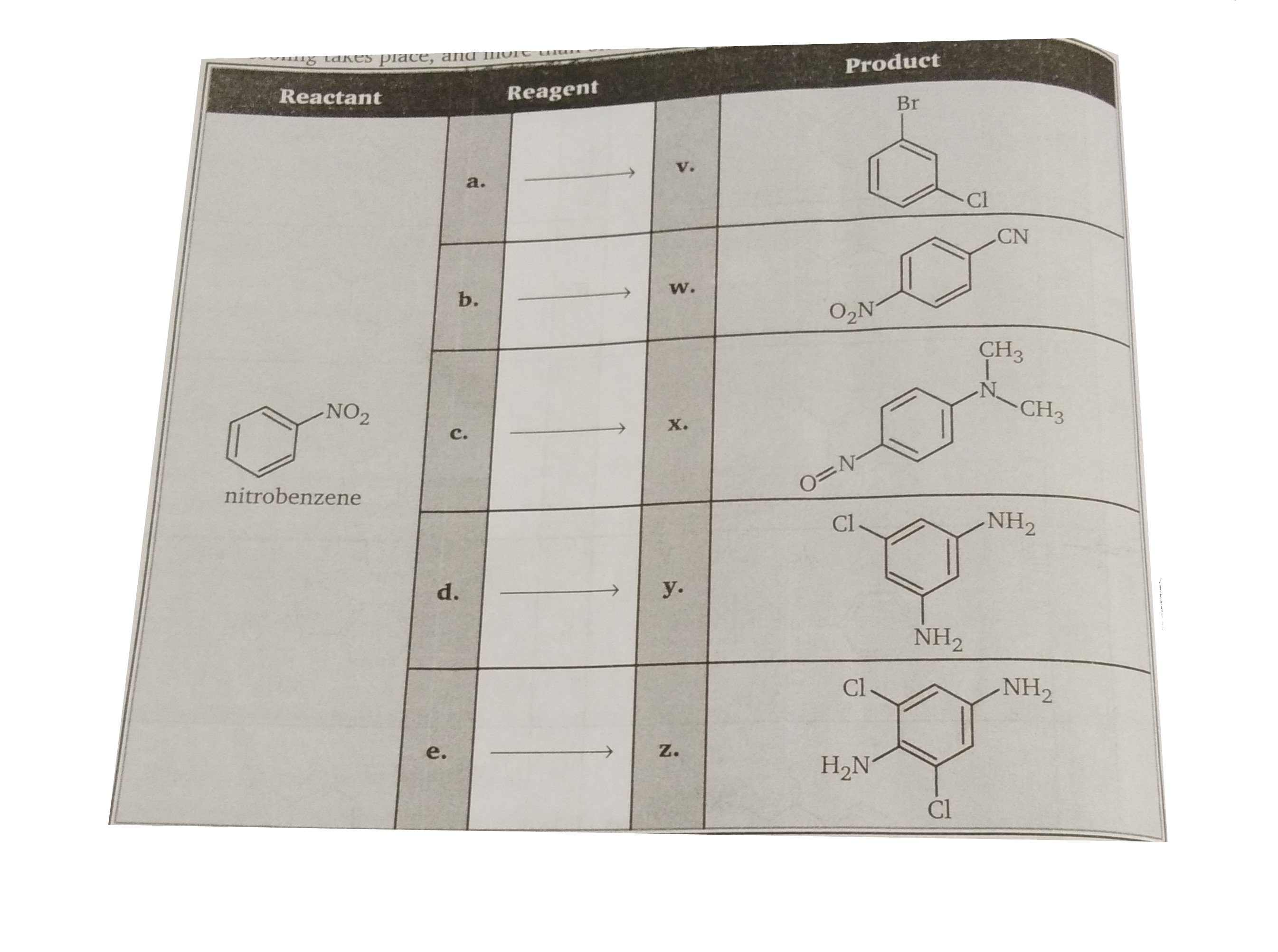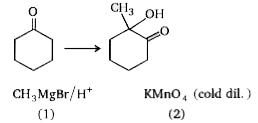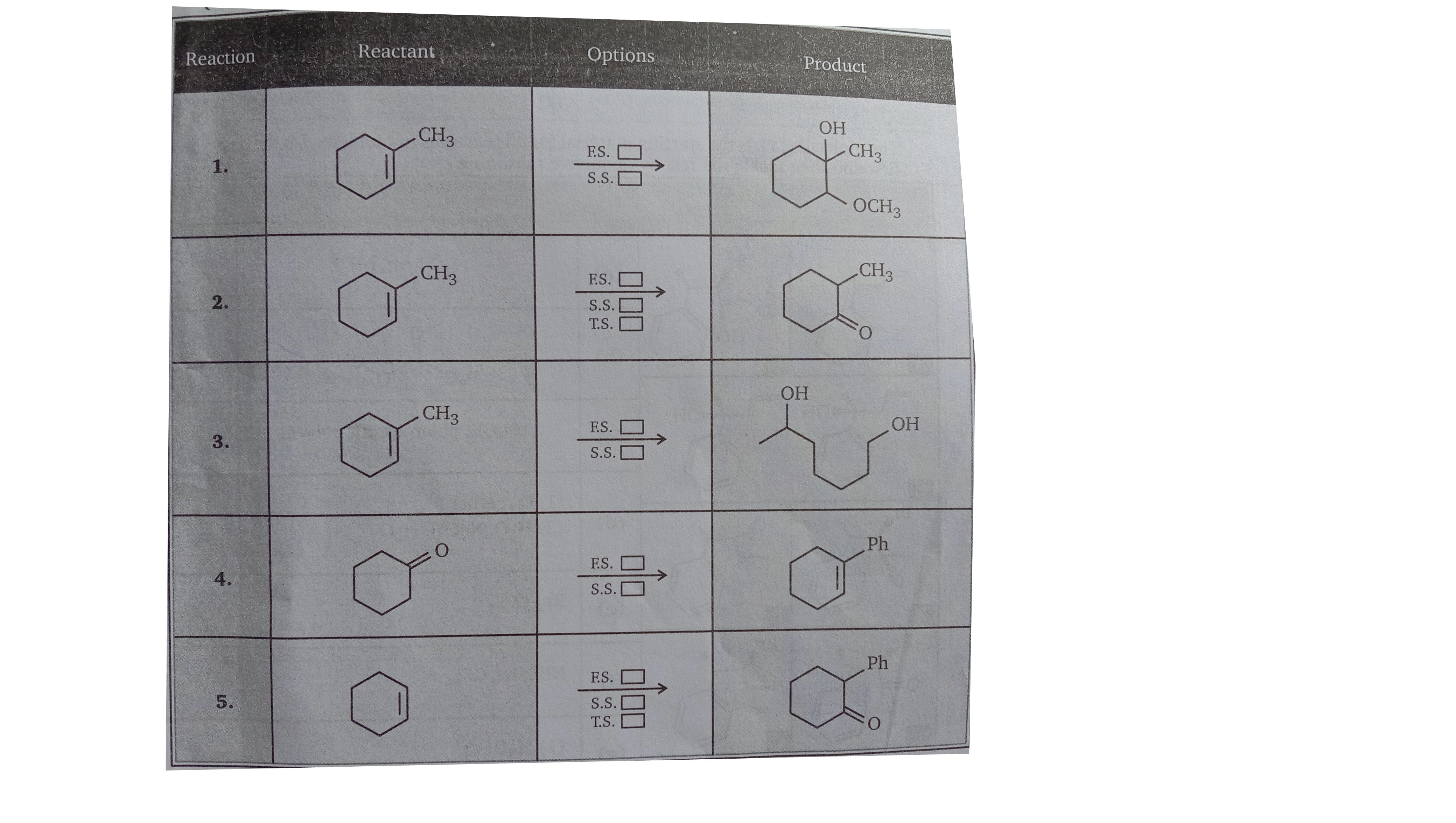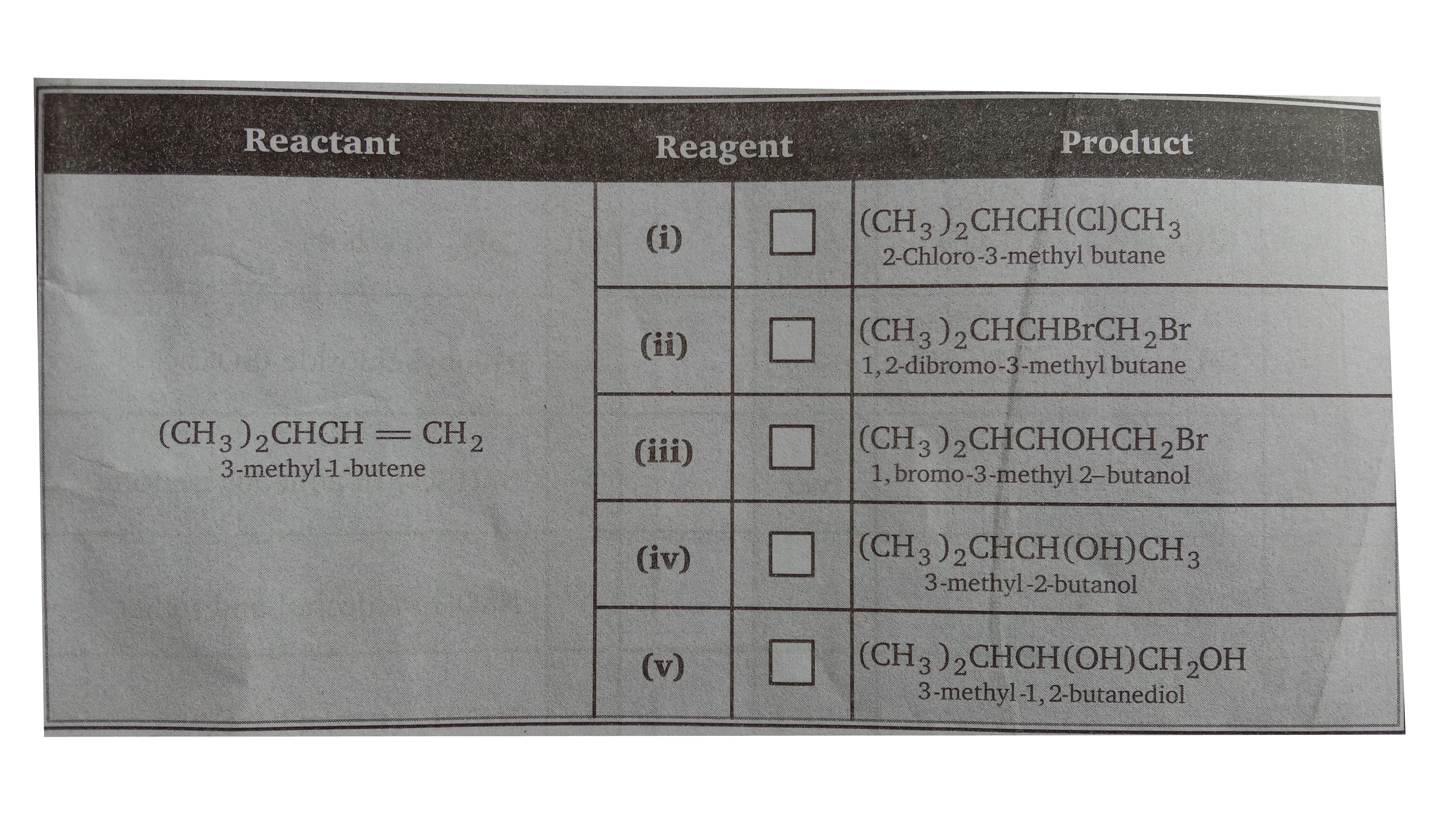Nitrobenzene is a versatile compound that may be converted inot a wide variety of subsituted benzenes. Five such synthesis are shown below. In each reaction box above an arrow write letters designating the reagents and conditions, selected from the list at the bottom of the page, that would effect the transformation. The reagents must be written in the answer box in the correct order of their use. You may assume appropriate heating or cooling takes place, and more than one equivalent of the reagent may be used if needed.

ReagentsReagentsAH2,NicatalystFCl2 & FeCl3BKBr & Cu2Br2GNaOH10% solutionCKCN & Cu2(CN)2H(CH3CO)2O, pyridineDHNO20∘CIHNO3/H2SO4ECH3I & pyridine
Text Solution
The correct Answer is:v -F, A, D, B; w-A, H, I, G, D, C; x - A, E, D; y - F, I, A or I, F, A; z-A, H, I, F, G, A or A, H, I, F, A, G
Basic information
|
Topper's Solved these Questions
- AROMATIC COMPOUNDSBOOK - MS CHOUHANCHAPTER - AROMATIC COMPOUNDSEXERCISE - Subjective Problems
3 Videos
- AROMATIC COMPOUNDSBOOK - MS CHOUHANCHAPTER - AROMATIC COMPOUNDSEXERCISE - Solved Problem
48 Videos
- AROMATIC COMPOUNDSBOOK - MS CHOUHANCHAPTER - AROMATIC COMPOUNDSEXERCISE - Level 1 (Q.181 To Q.210)
1 Videos
- AN INTRODUCTION TO ORGANIC REACTIONS AND THEIR MECHANISMS ACIDS AND BASESBOOK - MS CHOUHANCHAPTER - AN INTRODUCTION TO ORGANIC REACTIONS AND THEIR MECHANISMS ACIDS AND BASESEXERCISE - ADDITIONAL QUESTION (SINGLE CORRECT CHOICE TYPE )
32 Videos
- BIOMOLECULESBOOK - MS CHOUHANCHAPTER - BIOMOLECULESEXERCISE - Level 2
1 Videos
Similar Questions
Knowledge Check

For the above conversion the correct order of reagents used is :A1→2→3→4B1→4→3rar2C1→4→2→3D2→3→4→1Which of the sets of reagents below should be used to effect the following transformation ?
 ACH3CH2Br,PPh3/C4H9Li/THF/−78∘C.B1)CH3CH2MgBr/Et2O,2)H2/SO4/ΔCHC≡Can/THF/−78∘C,2)H2/Pd−CBaSO4/ quinolineDBr2/CH3CO2H,2)Mg/Et2O,3)CH3CHO,4)H2SO4/Δ
ACH3CH2Br,PPh3/C4H9Li/THF/−78∘C.B1)CH3CH2MgBr/Et2O,2)H2/SO4/ΔCHC≡Can/THF/−78∘C,2)H2/Pd−CBaSO4/ quinolineDBr2/CH3CO2H,2)Mg/Et2O,3)CH3CHO,4)H2SO4/ΔAttacking reagent on benzene in the above reaction is
AAn electrophile i.e. Fe−Cl2BAn electrophile i.e. Cl+CA nucleophile i.e. Cl−DA nucleophile i.e. FeCl−4
What is the role of metal or reagents written on arrows in the given chemical reactions?

View SolutionThe reagent that is used to convert phenol into benzene is:
View SolutionThe reagent that is used to convert phenol into benzene is:
View Solution
Arrange the following reagent in the correct order in which above transformation is carried out :
View Solution
Arrange the following reagent in the correct order in which above transformation is carried out :
View Solution



 In each reagent box write a letter designating the best reagent and condition selected from the above list of reagents.
In each reagent box write a letter designating the best reagent and condition selected from the above list of reagents. 